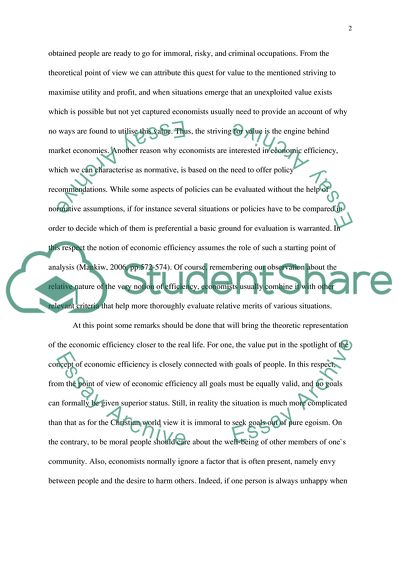Cite this document
(Efficiency in Economics Essay Example | Topics and Well Written Essays - 1500 words - 1, n.d.)
Efficiency in Economics Essay Example | Topics and Well Written Essays - 1500 words - 1. https://studentshare.org/macro-microeconomics/1537426-carefully-explain-what-economists-mean-by-efficiency-using-examples-from-the-real-world-where-appropriate-explain-why-economists-consider-monopolies-to-be-i
Efficiency in Economics Essay Example | Topics and Well Written Essays - 1500 words - 1. https://studentshare.org/macro-microeconomics/1537426-carefully-explain-what-economists-mean-by-efficiency-using-examples-from-the-real-world-where-appropriate-explain-why-economists-consider-monopolies-to-be-i
(Efficiency in Economics Essay Example | Topics and Well Written Essays - 1500 Words - 1)
Efficiency in Economics Essay Example | Topics and Well Written Essays - 1500 Words - 1. https://studentshare.org/macro-microeconomics/1537426-carefully-explain-what-economists-mean-by-efficiency-using-examples-from-the-real-world-where-appropriate-explain-why-economists-consider-monopolies-to-be-i.
Efficiency in Economics Essay Example | Topics and Well Written Essays - 1500 Words - 1. https://studentshare.org/macro-microeconomics/1537426-carefully-explain-what-economists-mean-by-efficiency-using-examples-from-the-real-world-where-appropriate-explain-why-economists-consider-monopolies-to-be-i.
“Efficiency in Economics Essay Example | Topics and Well Written Essays - 1500 Words - 1”. https://studentshare.org/macro-microeconomics/1537426-carefully-explain-what-economists-mean-by-efficiency-using-examples-from-the-real-world-where-appropriate-explain-why-economists-consider-monopolies-to-be-i.


